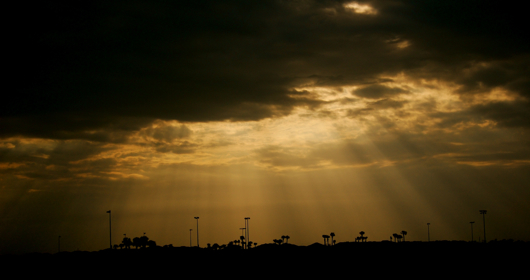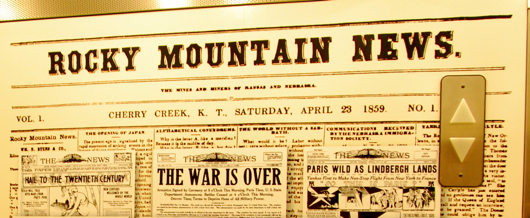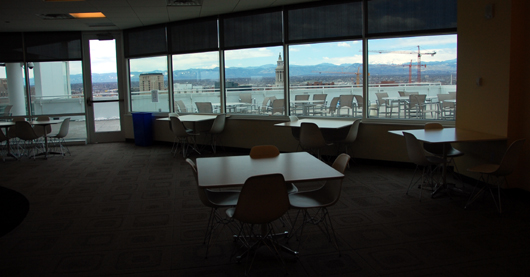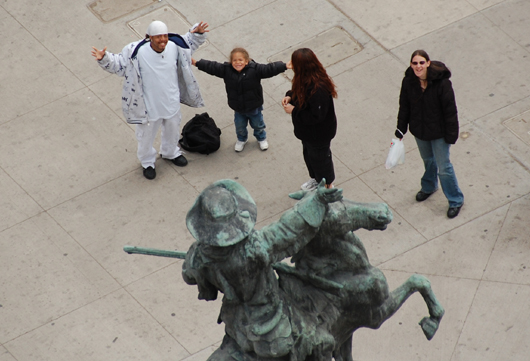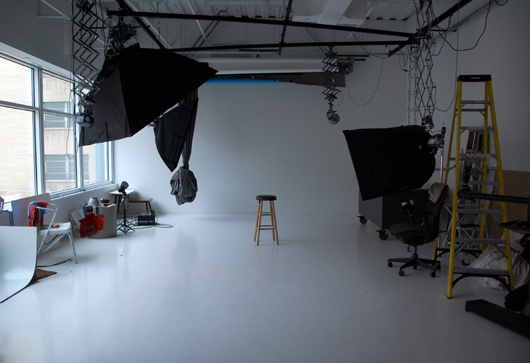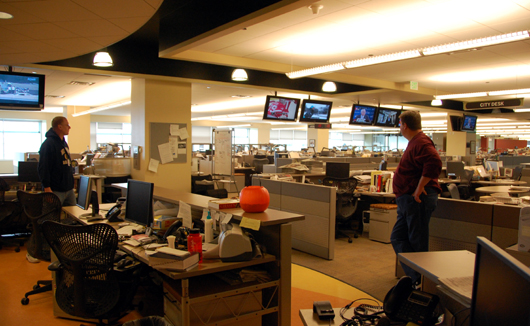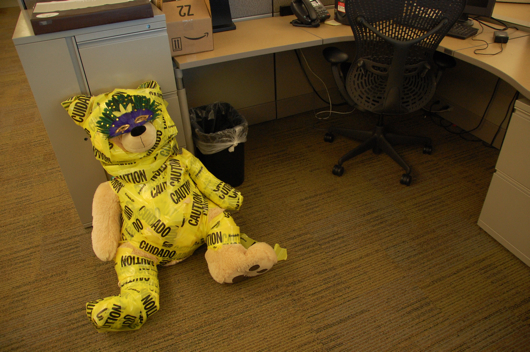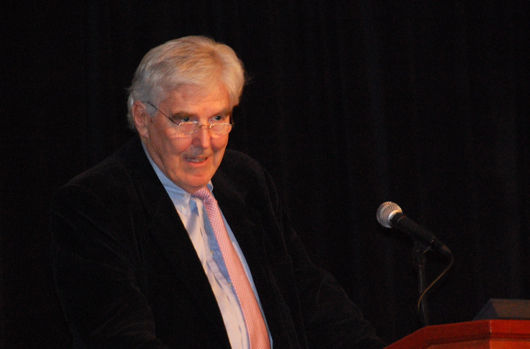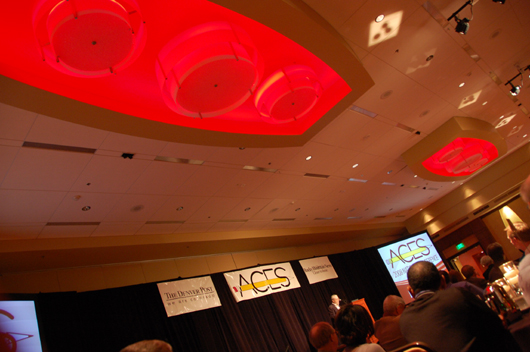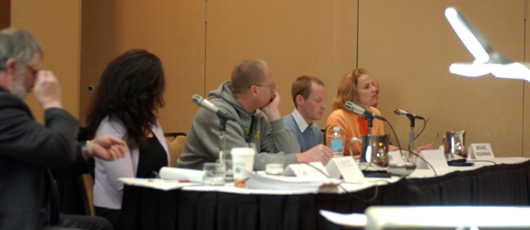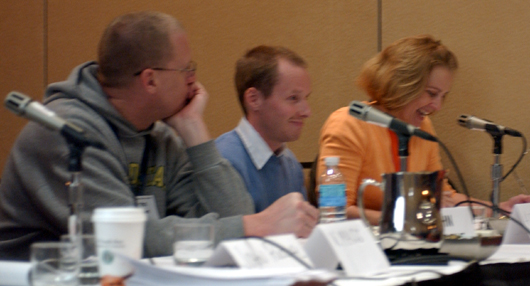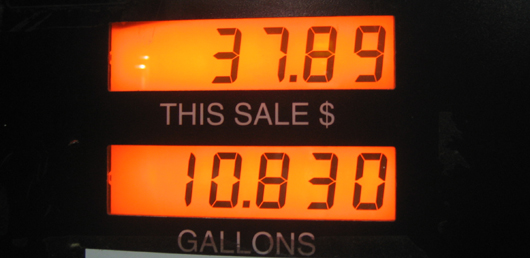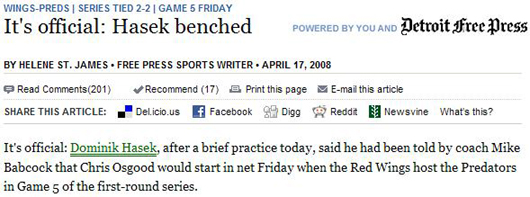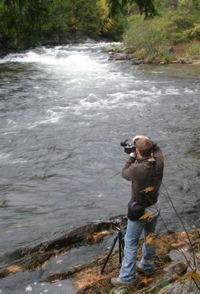Temple University professor and Offlede mentor Ed Trayes delivers the keynote address at the 2008 American Copy Editors Society national convention in Denver.
If it weren't for a single person, I wouldn't be where I am today. I might be reporting at some tiny community newspaper in North Dakota.
But because of Temple University professor Ed Trayes, I'm a copy editor. And I'm proud of it.
I had the privilege of being taught by Trayes for two weeks as part of my training for The Dow Jones Newspaper Fund editing program. As a fund co-founder, he has led more than 50 such residencies.
After that boot camp last spring, I spent the summer at Newsday as probably its last Dow Jones intern.
It's because of Trayes that I value my role as a copy editor more than I would as a reporter. Copy editors are the quality controllers. We know a lot so that nothing will slip by us, whether it's about Brad Pitt or George Bush.
It was appropriate that Trayes was the keynote speaker for my first American Copy Editors Society national convention. And for a guy who has spent decades training young journalists, he knows that it is our flexibility in adapting to new media that will determine our future.
"No journalist's job has changed more than the copy editor's," he said. "And no group has handled change better, been more nimble, ever going forward, ever adapting, succeeding."
Trayes said that some publications have shot themselves in the foot by trying to attract all audiences through the "slicing and dicing" of content. A focus on a broader readership results in a poorer diet of news.
"So often the competition is we - ourselves," he said.
Today's world is one of shorter attention spans. Instead of actively seeking it, readers want the news to come to them. Commuters at metropolitan train stations will check a box of free newspapers, find it empty, then walk away disappointed - all as a box of 50-cent papers sits full, forlorn, almost untouched.
Trayes said publishers should give away newspapers. Maybe then, we could make those commuters happy.
But the greatest challenge to newspapers, to journalism, is not price; it is time. Technology has trimmed the news cycle from 24 hours to 24 minutes, "probably less," he said. But copy editors will not, must not, get lost in this frenzy.
"Technology ... will not kill us," Trayes said. "As long as there are words to be written, there will be copy editors with whatever at the time is the technological equivalent of a sharp pencil. ... With this in mind, technology and the lifestyles of today - how people choose to get news and information, how they choose to spend their time - will change us."
Technology certainly has changed me.
In the past several months, I have gone from a copy editor of words to a copy editor of media. The new tools that make the news richer - tools such as video, photos, blogs and the general wide world of the Web - must be viewed with the unique and critical eye of a copy editor. We know the genuine from the contrived, the worthy from the weak. When I trained in video editing, I said it is a job that is natural for a copy editor because video is also about details.
After Newsday, I took a job at a company with forethought, with a vision for the future's journalism that is dominated by new media. Copy editors' jobs have changed from the strict editing of words to pagination and design. Now, we must adapt to the online world. And we can't sit back. We must speak up to ensure quality.
"It is up to each of you to meet the challenges as they come while taking an active role in determining what copy editors can and must do in the years ahead," Trayes said.
Some people have criticized my views that traditional copy editors have fallen behind because they have not met the challenges of today's technology. They do not understand
how to use it. They do not even understand its
uses.
"For at least some of you, if not most of you, the next great battle is online editing," Trayes said. "Editing for Web sites and other venues must have the same standards as print. There is no doubt about copy editing being under attack in this area."
Trayes arrived the morning of his keynote address at the convention's host, the Marriott in Denver. He attended the panel discussion about online editing at which I spoke. I thought his presence would make me nervous, but it put me at ease: I knew he would support, if not agree with, what I said.
In my closing words, I said, "Because of the scrutiny that our Web sites are subjected to, it’s absolute that the next generation of online news producers should be us – traditional, well-grounded, smart and unreasonably critical copy editors. Our reputations are at stake."
In his closing words, Trayes said, "Readers, online and otherwise, count on, depend on, what copy editors pass along as true, accurate and fair."
We may be ignored, but we are not insignificant. We are not powerless.
We are copy editors. We balance the scales of journalism justice. That will never change.
Bill Connolly, formerly of The New York Times, spoke after Trayes.
Trayes and I after his keynote.
